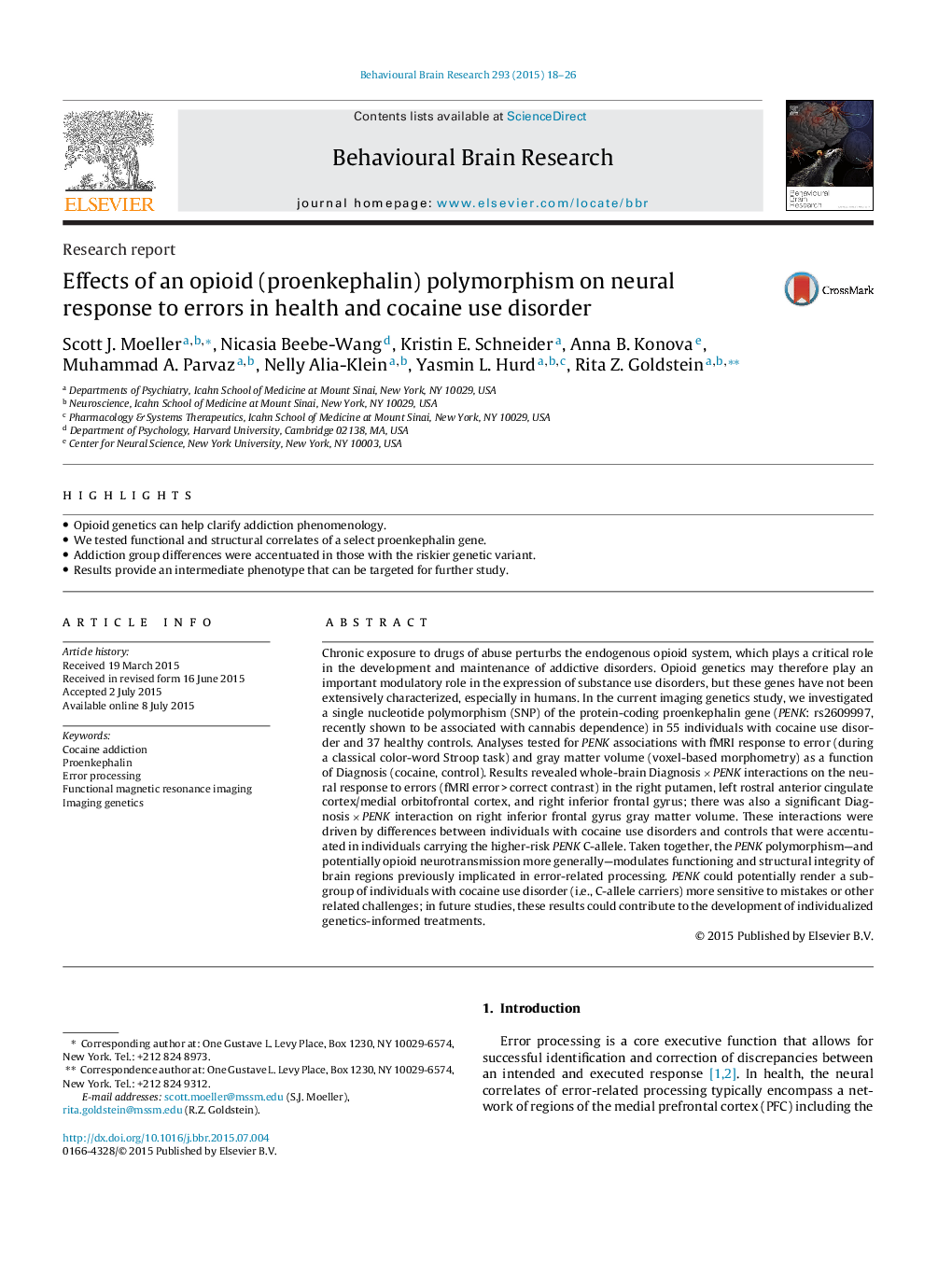| کد مقاله | کد نشریه | سال انتشار | مقاله انگلیسی | نسخه تمام متن |
|---|---|---|---|---|
| 6256585 | 1612939 | 2015 | 9 صفحه PDF | دانلود رایگان |
- Opioid genetics can help clarify addiction phenomenology.
- We tested functional and structural correlates of a select proenkephalin gene.
- Addiction group differences were accentuated in those with the riskier genetic variant.
- Results provide an intermediate phenotype that can be targeted for further study.
Chronic exposure to drugs of abuse perturbs the endogenous opioid system, which plays a critical role in the development and maintenance of addictive disorders. Opioid genetics may therefore play an important modulatory role in the expression of substance use disorders, but these genes have not been extensively characterized, especially in humans. In the current imaging genetics study, we investigated a single nucleotide polymorphism (SNP) of the protein-coding proenkephalin gene (PENK: rs2609997, recently shown to be associated with cannabis dependence) in 55 individuals with cocaine use disorder and 37 healthy controls. Analyses tested for PENK associations with fMRI response to error (during a classical color-word Stroop task) and gray matter volume (voxel-based morphometry) as a function of Diagnosis (cocaine, control). Results revealed whole-brain Diagnosis Ã PENK interactions on the neural response to errors (fMRI error > correct contrast) in the right putamen, left rostral anterior cingulate cortex/medial orbitofrontal cortex, and right inferior frontal gyrus; there was also a significant Diagnosis Ã PENK interaction on right inferior frontal gyrus gray matter volume. These interactions were driven by differences between individuals with cocaine use disorders and controls that were accentuated in individuals carrying the higher-risk PENK C-allele. Taken together, the PENK polymorphism-and potentially opioid neurotransmission more generally-modulates functioning and structural integrity of brain regions previously implicated in error-related processing. PENK could potentially render a subgroup of individuals with cocaine use disorder (i.e., C-allele carriers) more sensitive to mistakes or other related challenges; in future studies, these results could contribute to the development of individualized genetics-informed treatments.
Journal: Behavioural Brain Research - Volume 293, 15 October 2015, Pages 18-26
